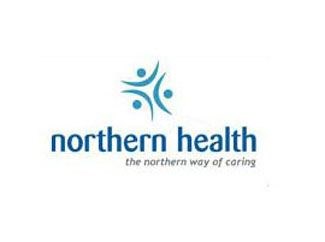In an effort to reduce the barriers that come with HIV testing, the procedure will be part of regular patient care for all northern communities.
HIV testing is now offered as part of regular patient care at St. John Hospital in Vanderhoof, Stuart Lake Hospital in Fort St. James and the Fraser Lake Community Health Care Centre in Fraser Lake.
In Prince George the testing has been offered since last December to all UHNBC patients having blood taken while in hospital for another reason, helping to lift the stigma of being tested for the disease.
Acute care sites that will begin to offer the testing later in 2014 include the Lakes District Hospital and Health Centre in Burns Lake and the rest of northern B.C. communities will see routine testing done by 2016.
"There's nothing harder in health care than talking to someone about their sexual practices or their illicit drug practices," said Robert Milligan, regional blood born pathogens health systems navigator at Northern Health.
Early detection is key to managing the disease that is considered chronic but no longer has to be a death sentence, said infectious diseases specialist, Dr. Abu Hamour, in his opinion editorial posted on the Northern Health website.
It's important for people to identify with the risk factors of HIV.
"And then the hard part is they need to disclose those risk factors, so at Northern Health we're looking in the rural communities where health care professionals are part of the known general public," said Milligan. "So in Vanderhoof you might be playing on the same softball team as your physician or your physician has known you since birth and you go to school with their kids
or as an adult you're a nurse that works with the doctor in the hospital. So that's a really hard conversation to have for the patient."
A patient telling a doctor that they're at risk is a big barrier to being tested.
"We know that only 20 percent of men who have sex with men (MSM) disclose their MSM status to their physician and that disclosure can take up to four years and during those four years a lot can happen," said Milligan.
Early symptoms are much like the flu so people don't know to get tested for symptoms and 60 per cent are diagnosed in the advanced stages of the disease.
The earlier the treatment the better the quality of life. Medications to manage the disease are not what they once were. There is less toxicity, fewer side effects and less of pill burden - people used to have to take 20 or more pills a day and now it can be as few as one.
Northern Health has now aligned HIV with other chronic diseases like heart disease, renal, cancer, and diabetes.
"We can really look at HIV as similar to diabetes as it's a life-long infection, you have to do daily maintenance but you can live a long, normal, healthy life," said Milligan. "An average 20-year-old man in B.C. diagnosed with HIV now has a life expectancy of 75 years, which is five years less than a normal life expectancy."
According to the 2012 annual report called HIV in B.C. provided by the B.C. Centre for Disease Control, gay, bisexual and other men who have sex with men continue to comprise the greatest number of new HIV diagnoses in B.C. The overall trend in new HIV diagnoses among MSM is elevated but stable over the past 10 years; the number of new HIV diagnoses among MSM decreased to 149 cases in 2012 from 170 cases in 2011. In 2012, the number of new HIV diagnoses in B.C. among people who use injection drugs continued to decrease to 29 cases from 34 cases in 2011.
The highest rates for new HIV diagnoses were in the Vancouver Coastal and Northern Heath Authorities but new rates are decreasing or stable in all health authorities, the survey said.
Those tested and diagnosed can start treatment early, which prolongs life and improves quality of life. People taking HIV medications can now have healthy lives, relationships, and children, said the report.
The new practice follows 2014 HIV testing guidelines provided by B.C.'s Office of the Provincial Health Officer. These guidelines recommend everyone between 18 to 70 years of age, in both acute care settings and the community, be offered an HIV test every five years as part of routine health screening.
The routine offering of HIV testing initiative is funded by B.C.'s Ministry of Health. It's part of the From Hope to Health: Towards an AIDS-free Generation initiative, formerly known as the STOP HIV/AIDS pilot project. Northern Health has its own STOP HIV/AIDS education and awareness campaign with the main goal to normalize HIV testing, by urging everyone who is sexually active or using injection drugs to get an HIV test in order to achieve the AIDS free generation.


.png;w=120;h=80;mode=crop)
